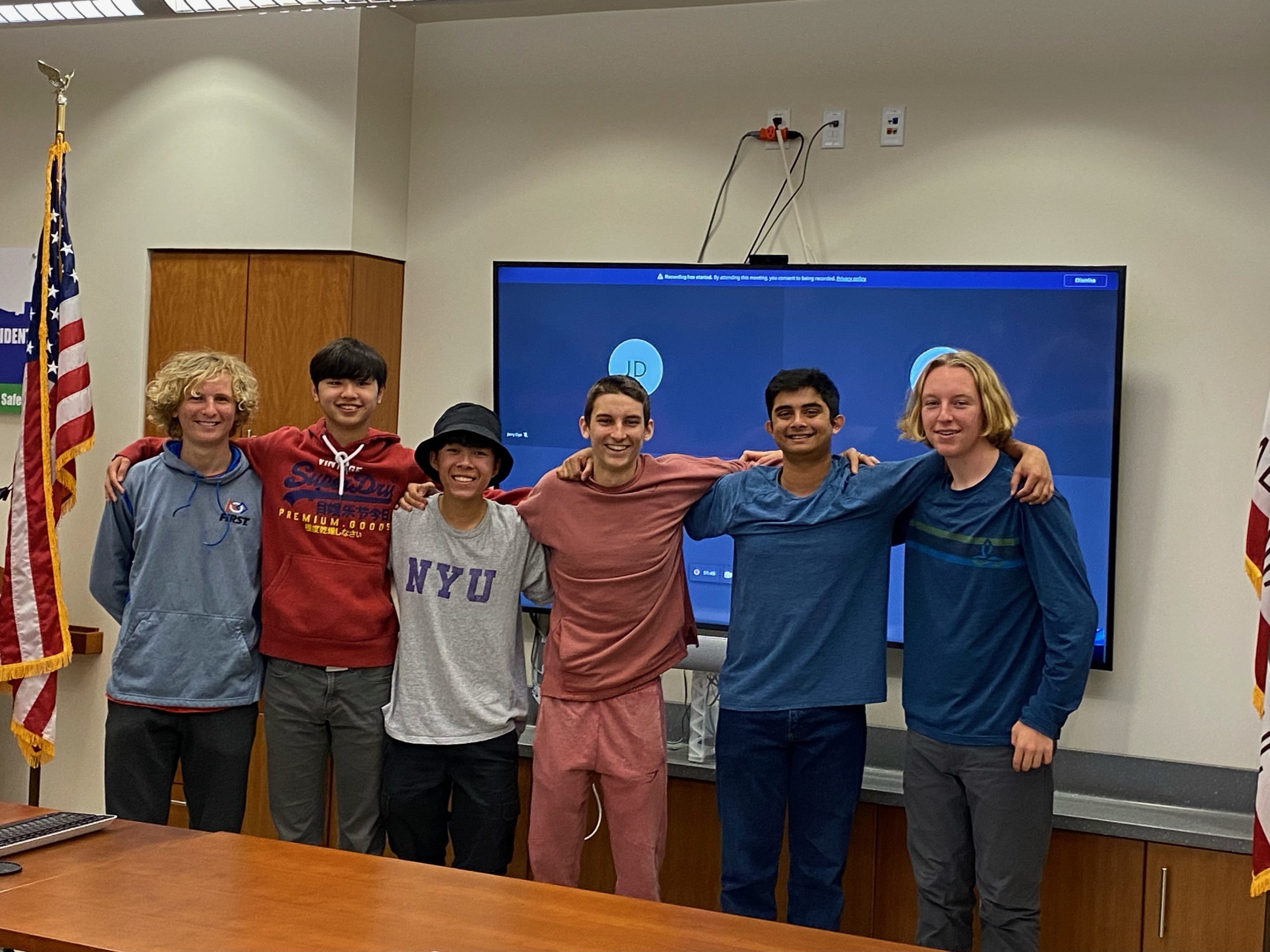
Hosting high school students for a tour of your wastewater treatment plant is nothing new.
But having students stay with you for two solid weeks, analyze wet weather data, and then give a presentation on their findings to you and your staff surely is.
That’s what’s happening at the Silicon Valley Clean Water (SVCW) treatment plant in Redwood City. The plant recently hosted six students from nearby Design Tech High School every morning for two weeks, enabling them to design their own program correlating plant wet weather flow rates with area rainfall data.
SVCW chief financial officer Matt Anderson was closely involved with the project and says his agency hopes the exposure to wastewater treatment might spark career interest from some of the students in the future. A second round of student projects is planned for SVCW in February 2023.
“Design Tech is a magnet school on the campus of Oracle (the computer technology company), and the school originated the program,” Anderson says. Various companies and industries in the area participate, but Anderson says the school was excited to include the wastewater facility in this round of student projects because it was something different.
First, SVCW visited the high school and described what the agency did to treat and recycle wastewater, and protect the community’s water environment. Then the students visited the treatment plant where they were introduced to the basics—plant operations, the laboratory, sewer science program, environmental services.
After that, SVCW staff suggested four different project ideas the students could work on – internal communications, the design and planting of a community garden irrigated with recycled wastewater, shadowing the process engineering group, and wet weather data analysis.
The students chose the latter, and dug into 10 years of wet weather flow data, gathered rainfall data from the local fire department, correlated results and presented their findings to SVCW staff in a slide presentation at the end of their stay. One of the highlights was documentation of lag time between wet weather events and the return to normal flows at the plant.
“Overall, it was a very good experience,” says Anderson.
So much so that SVCW plans to participate in another round of student projects in February 2023.
Anderson says his agency plans to present the community garden and the internal communications projects for the students to consider. He adds SVCW hopes to attract more female students in this second round.
“We’ve had a lot of construction at the site for a number of years,” he says. “The garden can be a way of giving back to the community—something they can visit and enjoy.” The project would involve design of the garden and the selection of appropriate plants.
Internal communications would have value, too, since the staff of 90 at the SVCW plant has experienced turnover and improved workforce communications is always a need. Students might employ their generational skills in digital platforms and social media.
In either case, not only would students learn by doing, but SVCW might learn a few new approaches from them.
While the SVCW student project is technically not an internship, Anderson believes it can have value for the agency. “We’ve tried the conventional recruiting methods,” he says. “People are hard to find, especially those with technical skills in automation and electrical controls.”
The students in the Design Tech program may or may not be interested in wastewater treatment at this time in their careers, he says, but SVCW is a good agency, offering a solid career. “Some students may see their way to (this career) in the future.”
On their last day at SVCW, the students were asked whether they would pursue a wastewater career. The common response was that they never thought of wastewater industry this way before, but might consider it.
Arvind Akela, SVCW’s engineering and environmental services director says, “We would consider our effort a success even if we have educated and influenced one person to pursue a career in wastewater. Our Industry has a lot to offer but we are often undersold to the new incoming generation of workforce”